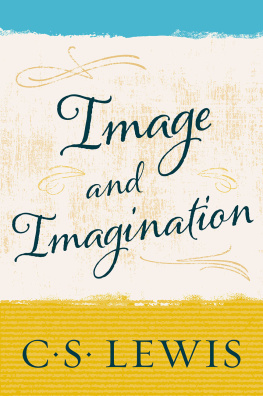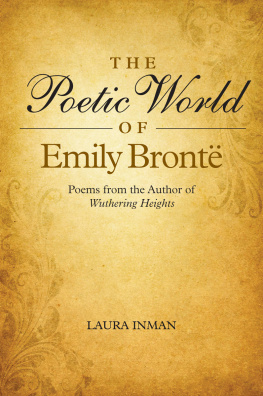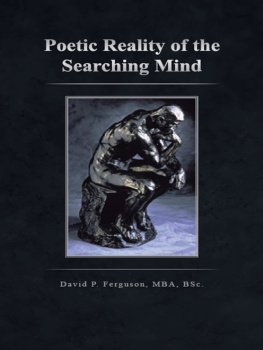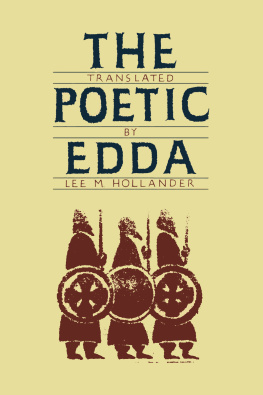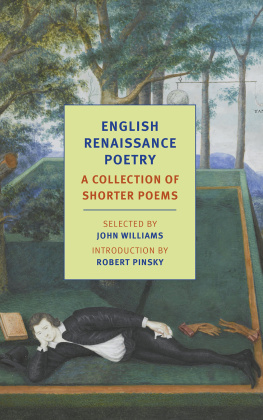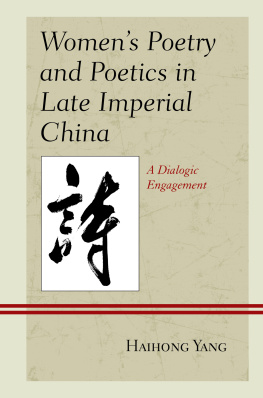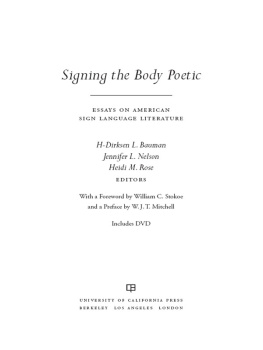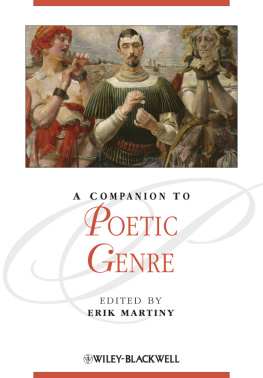THE POETIC IMAGE
by
C. DAY LEWIS

Contents
Let me first express my gratitude to the Master and Fellows of Trinity College, Cambridge, for honouring me with their invitation to give the Clark Lectures, for their hospitality during my visits to Cambridge, and for their great kindness to a lecturer most uncomfortably aware of the formidable distinction of his predecessors in the lectureship. I would like also to thank: the audiences whose responsiveness made it delightfully clear that poetry is neither a lost cause nor a mystery to the younger generation; the friends at Cambridge and elsewhere who, discussing the matter of these lectures with me, made valuable contributions to the book as it now stands; and lastly, the one who, from first to last, with gentle encouragement and delicate criticism helped me over the exacting course I had set myself when I chose The Poetic Image as my subject.
This book contains the lectures very much as they were delivered. I have not thought it necessary to eliminate all traces of the spoken word. But I have included certain afterthoughts of my own, as well as the modifications suggested by others; and I have tried to weed out every piece of that critical jargon which, whether it springs from mental indolence or is a subtle form of egotism, does so much to deter the intelligent reader. The poetic image is a subject too wide to be adequately covered in a study of this length, even by a critic far more sensitive and scholarly than myself. It will be enough if I have given the ordinary reader an introduction to some of its many aspects, and perhaps contributed a few ideas to the major work of criticism which has yet to be written on it.
C. DAY LEWIS
Musbury, Devon
In dutiful memory
F.C.D.-L. * K.B.D.-L.
I
The Nature Of The Image
There is always something formidable for the poet in the idea of criticism something, dare I say it? almost unreal. He writes a poem; then he moves on to the new experience, the next poem: and when a critic comes along and tells him what is right or wrong with that first poem, he has a feeling of irrelevance. Did I write that? Yes, so I did. How odd! But to-day the problem is altered, and your excellent comments on my solution of the previous problem only confuse me in my attempt to solve the new one, for
every attempt
Is a wholly new start, and a different kind of failure
Because one has only learnt to get the better of words
For the thing one no longer has to say, or the way in which
One is no longer disposed to say it.
Not only that. The poet turned critic is faced with the novel danger of contradicting himself. No poem ever contradicts another poem, any more than one experience can be contradicted by another. Contradiction only comes when we begin to make deductions from our experiences, or judgments on poetry. Stepping out of the cosy world where his poetic word was law, stepping through the mirror into the world of poetic criticism, the poet enters a very curious country. At first it may seem familiar enough, a duplicate of the world he has left. But soon he finds a difference: the butterflies are pinned onto the flowers, and every flower is labelled; the streams in which he so innocently bathed have widened into turgid rivers he learns that in this country they are called influences; the hedges are much tidier, certainly, but what is that notice over there? Keep off the grass! Do not pick the daffodils! Property of W. Wordsworth. His old companions, who once sauntered alone or changed partners in the dance, are now for ever being made to stand on weighing-machines, or to pound all over the landscape in schools, with the purposeful gait of hikers, clouds of footnotes swirling at their heels. Everything is at once simpler and more complicated, more solemn and yet less serious. And as soon as he opens his mouth to comment on the scene, a loud-speaker raps out, None of that emotive language here! Remember, you are a critic now!
Well, he is come into a world of law and logic, and he must try to speak its tongue. In this new language, conflicts are not resolved by the passion with which they are felt and stated. A critic is going on record now, and what is to be recorded is not poetic experience so much as a series of abstractions from it. To be of any value whatsoever, these abstractions must in some way illuminate their source; they will fail to illuminate it unless the critic has brooded over the poem, surrendered himself to it absolutely, strained his ears to catch its remotest undertones, with the same absorption that the poet gave to the experience from which it was shaped. A critic who imposes his own abstractions upon poetry may be writing good history, good sociology, good psychology, but he will never be writing literary criticism.
To say it quite simply, the critic has one pre-eminent task the task of easing or widening or deepening our response to poetry. There are, of course, many ways of performing this task. But no critical method will satisfactorily perform it, if there is not respect both for the poem and for the reader. This should not need saying; yet we too often find in criticism, to-day, passages in which dishonest controversy, undraped narcissism or glue-pot jargon reveal an attitude towards the reader of dogmatic contempt. The great critics, Dryden, Coleridge, Shelley, Arnold, never forgot that kind of good manners we call style.
I have thought it necessary to remind myself of this at the start, for I am an infrequent visitor in the looking-glass land I described just now. The reader will wonder, perhaps, what to expect of me. I should fly some recognition signal. A poet says, A book is the precious life-blood of a master spirit, and we know where we are with him: another man says, A book is a machine for thinking with, and well, we know where we are, at any rate. There is something heroic about the great generalization in criticism; it seems such a gloriously hit-or-miss affair, and in the excitement of the hits we forget the overwhelming number of misses and quite fail to notice that the hits were not a matter of luck at all. I shall venture a modest generalization or two myself presently. But first I will ask someone else to introduce my subject.
In the present age the poet seems to propose to himself as his main object, and as that which is the most characteristic of his art, new and striking images In his diction and metre, on the other hand, he is comparatively careless. The measure is either constructed on no previous system, and acknowledges no justifying principle but that of the writers convenience; or else some mechanical movement is adopted, of which one couplet or stanza is so far an adequate specimen, as that the occasional differences appear evidently to arise from accident, or the qualities of the language itself, not from meditation and an intelligent purpose.
I had really not intended to let Coleridge run on beyond the first sentence, but the whole passage is curiously apposite to contemporary verse, so much more apposite to it, we may think, than to the poetry of which he was speaking, that I did not stop him. No one, for that matter, ever could stop Coleridge talking. New and striking images. Wishing to undertake some theme which might throw light upon the poetry of our own time, yet believing it the most serious defect in modern criticism that this poetry is not sufficiently related and shown in perspective with the great vistas of the English poetic tradition, I seemed to find what I wanted in the poetic image. Novelty, audacity, fertility of image are the strong-point, the presiding demon, of contemporary verse and, like all demons, apt to get out of hand. The very word image has taken on, during the last fifty years or so, a mystical potency: think what Yeats made of it. Yet the image is the constant in all poetry, and every poem is itself an image. Trends come and go, diction alters, metrical fashions change, even the elemental subject-matter may change almost out of recognition: but metaphor remains, the life-principle of poetry, the poets chief test and glory.


